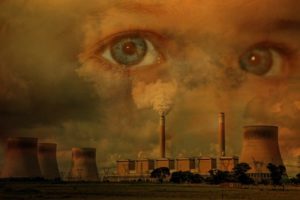Fluorinated Hydrocarbons – The Threat is Everywhere
Author: Maurice A. Ramirez, D.O., Ph.D. & Allison A. Sakara, N.P., M.S.N., R.N., P.H.R.N.
For more than 120 years, fluorinated hydrocarbons (FHCs) have been part of our world. The strength of the chemical bond between fluorine and carbon atoms in FHC compounds has led to the development of many products that are durable and resistant to other chemicals. Stain repellents, fire retardants, nonstick cookware, and coolants are a few examples of common materials made from FHCs. The same property that makes FHCs so valuable, however, is also what makes disposing of them so challenging. And understanding the biological activities, metabolism, degradation, and possible environmental hazards of FHCs will be the goal of this new series of articles.
FHCs are potent greenhouse gasses and are responsible for enormous quantities of fluoride ions being released into the biosphere. To date, only one type of FHC has been banned (chlorofluorocarbons) but there are hundreds still in widespread production and use. And all form toxic compounds that can accumulate in the earth-bound environment. One type of FHC familiar to many people is used as a coolant in refrigerators and air-conditioning units. When these consumer or industrial products leak into the air or soil, the FHC gasses released are a thousand times more potent than carbon dioxide.
FHCs are used in many medical applications, such as coatings on surgical equipment and in the manufacture of materials used for medical treatment and devices. These same compounds comprise a majority of firefighting foams and are a by-product of the aluminum industry. FHCs are toxic and accumulate in all aspects of the food chain. The impact of these compounds on the risk of cancer, birth defects, and other health problems has become a growing field of research. Of particular emphasis in the news lately has been a type of FHC known as PFAS, which stands for per- and polyfluoroalkyl substances. PFAS is but one FHC found in water, air, fish, and soil at locations around the globe and has been linked to harmful health effects in humans and animals.
The impact of removing FHCs from the environment, as well as the enormous task of doing so, can only be appreciated by first exploring the often unappreciated and pervasive spread of FHCs. Pollution abatement processes have been developed to rapidly break down FHCs, destroying the build-up of chemicals that would otherwise persist for decades or centuries. These proven, on-site solutions are able to destroy over 99.99% of FHCs in contaminated air, water, and soil without creating secondary waste or storage of byproducts. Yet acceptance and use of these solutions remains an uphill battle.
In coming articles, we will examine the pathways and implications of FHCs in an All Hazards/One Health/One Nature/One Framework paradigm that will include the following:
- FHCs in the Air – Industrial processes, leaking equipment, and even ineffective clean-up efforts are all sources of FHCs being released into the atmosphere. Implications for the ozone layer, climate change, and the health of the planet will be explained.
- FHCs in the Water – FHCs have become ubiquitous in waterways, watersheds, oceans, and in underground water resources. What are the implications for plants, animals, food chains, and humans?
- FHCs in the Soil – Consequences of decades of FHC accumulation in the soil will be presented. The global impact on agriculture, civilizations, and habitats will be discussed.
- FHCs in Health and Disease – The health impacts of FHCs in air, water, soil, and food chains for all living things are significant. Current research findings will be presented.










